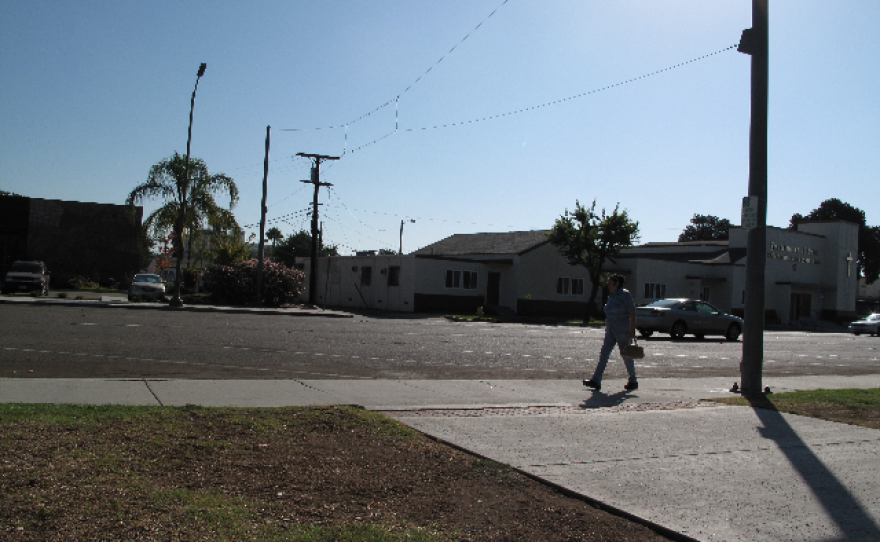In 2009, Rich Dudka went through one of the city's checkpoints, and his truck was impounded. Since he could not afford the impound fees, his truck was eventually sold. Dudka sued the city last August, and now, he's exploring the possibility of a class-action lawsuit, on behalf of all the people whose cars were impounded over the last six years.
Escondido Police Chief Jim Maher defends the checkpoints. But when asked about them a few months ago, Maher acknowledged that a lawsuit was likely.
"Every single car that approaches is just asked to show a driver's license," said Maher. "We're modifying that process and we haven't settled on a final process because the ACLU threatened to sue us. So we may have to check for other things besides just a driver's license."
One of the reasons the checkpoints have been so controversial is because they've led to an increase in deportations of undocumented immigrants who aren't, by law, allowed to get a driver's license.
Maher says the uproar over the checkpoints is not justified.
"It's wrong to not try to use every available legal tool to remove criminals," says Maher. "If you lived with a gang member, child molester, drug dealer next door, that the police could go and have deported, and we refused to do that--then I would be more upset."
Carlos Batara is a lawyer working in Escondido. He says the checkpoints have serious implications for the community, but whether the practice is illegal is something that would need to be decided by the courts.
"In my mind, so many of these measures violate constitutional concerns, like due process, but I'm not going to be the final judge of that," says Batara. "Ultimately, that issue needs to be taken up by the higher courts."
There's no telling yet whether Dudka's lawsuit will reach a class-auction status, and what implications, if any, it would have on the six year-old checkpoints practice.







